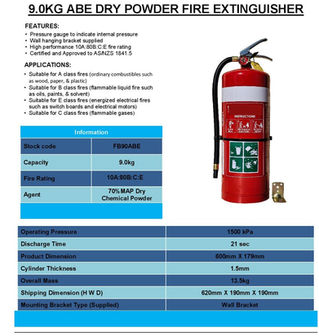Essential Fire Safety Tips for Your Home
- Jun 24, 2025
- 3 min read
Top Fire Safety Tips Every Homeowner Should Know
Fire safety is a paramount concern for every homeowner. Fires can start unexpectedly and spread rapidly, leading to devastating consequences. By taking proactive steps, you can greatly reduce the risk of a fire in your home and ensure the safety of your loved ones. This blog post highlights essential fire safety tips that you can implement to safeguard your home and family.
Understanding Home Fire Safety
Fire safety encompasses various practices and precautions designed to prevent fires and protect people, property, and the environment. Understanding the basic principles of fire safety can go a long way in ensuring that your home is a safe retreat.
In Australia, the fire departments respond to an average of 17,000 house fires annually. These fires result in hundreds of millions of dollars’ worth of property damage. Understanding how to mitigate these risks can help you become a proactive homeowner.
Create a Fire Safety Plan
Every home should have a clear fire safety plan that includes escape routes and meeting points. Here are some key elements to consider:
Identify Exit Routes: Regularly walk through your home and determine multiple exit routes from each room, especially bedrooms.
Establish a Meeting Point: Decide on a safe meeting spot outside your home where family members can gather after exiting.
Practice Drills: Conduct fire drills at least twice a year. Familiarity with escape routes can save precious seconds in an emergency.

Maintain Fire Safety Equipment
Having the right fire safety equipment in your home can make all the difference. Here are some critical items that you should have:
Smoke Detectors: Install smoke alarms in every room and on every level of your home. Test them monthly and replace batteries annually.
Fire Extinguishers: Keep fire extinguishers in easily accessible locations, especially in kitchens and garages. Ensure you understand how to use them correctly.
Fire Blankets: Having a fire blanket can be invaluable in case of small fires. They can smother flames quickly and help prevent injuries. You can find a variety of options available here.

What are Fire Blankets Typically Used For?
Fire blankets are specially designed to extinguish small fires, particularly those that involve flammable liquids or fabrics. These blankets are often made from materials that can withstand high temperatures and are used to smother flames.
Fire blankets can be especially useful in kitchens, where cooking fires can start quickly. They offer a simple, effective way to control flames before they escalate into something more dangerous. They are also handy in non-kitchen areas where a fire might break out.
Image Placeholder

Practice Safe Cooking
The kitchen is often the heart of the home, but also one of the leading sources of house fires. Here are some cooking tips for maintaining fire safety:
Stay Attentive: Never leave cooking food unattended. If you need to leave the kitchen, turn off the stove.
Keep Flammable Objects Away: Make sure to keep pot holders, dish towels, and other flammable items away from the stovetop.
Use Appliances Safely: Read the manufacturer’s instructions for all cooking appliances. Always keep the appliance clean to avoid grease buildup, which can ignite.
Electrical Safety Matters
Home electrical systems can also be a fire hazard if not properly maintained. Here's how to ensure your electrical safety:
Check Wiring: Regularly inspect wiring for signs of wear or fraying. Replace any damaged cords immediately.
Proper Use of Outlets: Avoid overloading electrical outlets, and always unplug devices when not in use. Utilise power strips with built-in circuit breakers for added safety.
Schedule Inspections: If unsure about your home’s electrical system, consider hiring a qualified electrician to conduct a safety inspection.
Store Flammable Materials Safely
Flammable materials can ignite easily and should be stored and handled with care. Here’s what you can do:
Proper Storage: Store flammable liquids, such as gasoline or cleaning supplies, in their original containers and keep them away from heat sources.
Dispose Correctly: Get rid of old or unused flammable materials safely, following local regulations for hazardous waste disposal.
Use Safe Containers: Always use safety-approved containers for storage and ensure they are tightly sealed.
Conclusion: Stay Educated and Prepared
Fire safety is an ongoing commitment. Don't wait for a fire to educate yourself about the risks and safety measures.
Regularly review and update your fire safety plan, keep fire extinguishing equipment readily available, and practice fire drills with your family. Share this knowledge with others to foster a community of safety-minded individuals.
By implementing these essential fire safety tips, you protect not only your home but also the people who live in it. Make fire safety a priority today and create a safer environment for you and your loved ones.

This article is intended to provide general information and is not customised for any individual's specific circumstances.









Comments